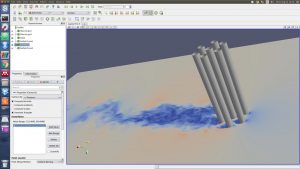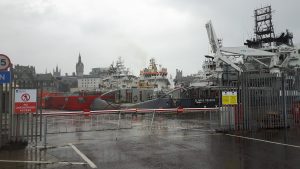
Between the 19th and 22nd June the FSI group was represented by PhD students Yu Cao and Bernat Font Garcia, as well as postdoctoral researches Francesco Giorgio-Serchi and Artur Lidtke at the Oceans ’17 conference in Aberdeen, Scotland.
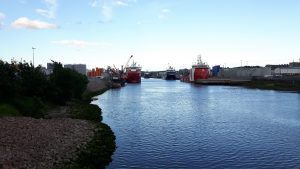
The event covered a very wide range of topics, from aquaculture, sensor technologies through to signal classification along with many more applied papers relevant to offshore structures and renewable energy. The papers presented by FSI researchers included a study of a mixed renewable energy scavenging device for an autonomous vehicle (Yu Cao https://pure.soton.ac.uk/admin/files/23591223/161201_132.pdf), development of a turbulence model for application to vortex induced vibration on riser pipes and moorings (Bernat Font Garcia https://www.researchgate.net/publication/316734503_Analysis_of_two-dimensional_and_three-dimensional_wakes_of_long_circular_cylinders), testing of a soft robot utilising shape change to propel itself (Francesco Giorgio-Serchi https://eprints.soton.ac.uk/410902/1/GiorgioSerchi_Weymouth_Oceans2017.pdf), and an experimental study of laminar flow effects on an underwater glider wing (Artur Lidtke https://eprints.soton.ac.uk/411106/).
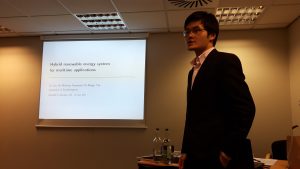
The conference was also preceded by a day of workshops and tutorials devoted to modelling marine renewable energy devices and design of autonomous underwater vehicles (AUV). Both subjects of significant interest to many within FSI.
Tag Archives: ship science
Summer Open day opportunities – learn more about ship science, naval architecture and marine engineering
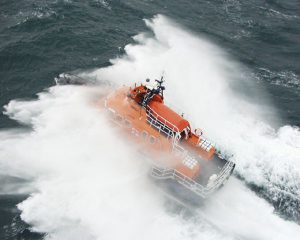
For many the maritime sector is not one they may know much about but there are many exciting careers in the industry, with plenty of opportunities to travel, work abroad and not just to always sit behind a desk at a computer. Our graduates are highly sought after in the industry and can be found in leadership positions worldwide and across a range of sectors from cruise ships, America’s Cup team, offshore industry, ship design and consultancy, marine renewables, defence sector, academia and even Silicon Valley. We are the only degree programme in the UK which is accredited by the Royal Institution of Naval Architects, Institute of Marine Engineering, Science and Technology, and the Institution of Mechanical Engineers. There are exciting engineering challenges in the maritime sector from how do we decarbonise shipping, protect lives at sea, maritime robotics, develop cost effect marine energy harvesters for wind, wave and tide to name but a few.
For those studying hard at school who are interested in the maritime engineering sector we have four open days this summer. Staff and students will be on hand to answer questions and show some of our facilities and educational experience. Our degree course cover a wide range of the maritime sector and provide great flexibility. We look for strong grades in maths and a suitable science such as physics, chemistry or further maths. Our admissions team is always happy to answer question either by email or phone.
This summer’s University open days are taking place on Saturday 8th July, Saturday 9th and Sunday 10th September and Saturday 14th October. To book for the 8th July or register an interest and find out more http://www.southampton.ac.uk/about/visit/open-days.page . It will be great to meet you and explain more.
Part 2 Ship Science Students Tour China's Maritime Sector

For the second year our second year ship science students have been able to visit ship yards and maritime organisations in China on a 10 day whistle stop tour. The opportunity to visit a variety of ship yards building ships, performance yachts, offshore platforms as well as some of the leading maritime universities and research organisations has been made possible because of a number of on-going educational partnerships between the Faculty of Engineering and Environment and our colleagues in China,
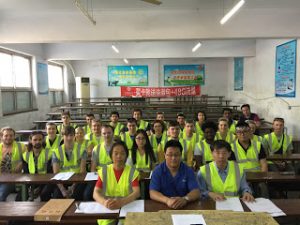
If you want to find out more please find our direct from the student’s blog at csiv2017.blogspot.com. There are some great shout outs to Dr Boyd’s ship production course being seen in action and my personal favourite about the need to reduce the drag of ship rudders..
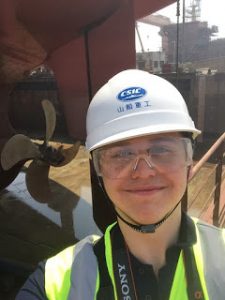
Long service on board ship science…
A recent innovation at the University of Southampton has been the introduction of a recognition award for long service at 20 years (a glass bowl) and 30 years (a carriage clock). Six members of staff in Fluid Structure Interactions were eligible. Presentations were made by our Head of Academic Unit, Prof Penny Temarel. (Top left) to Prof Ajit Shenoi for 30+ years, (Top middle) by Prof Shenoi to Prof Temarel for 20+ years, (Top Right)PT to Dr Mingyi Tan for 20+ years, (Bottom Left) PT to Prof Dominic Hudson for 20+ years, (Bottom Middle) PT to Prof Stephen Turnock for 20+ years and (Bottom Right) PT to Prof Philip Wilson for 30++ years!
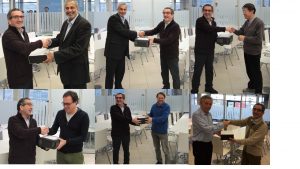
Promoting Maritime Engineering at the IMechE Arnold Barks Christmas Lecture
Professor Stephen Turnock and Laura Marimon Giovannetti had a busy day on the 7th July talking about the University of Southampton’s experience in engineering excellence in performance sport. Firstly in the afternoon at an event hosted by the Bishop Wordsworth school in Salisbury to an audience of 230 year 10 to year 12 students from four different school’s in the Salisbury area. Then again in a slightly longer format to the IMechE’s Wessex Region as the 11th Annual Arnold Barks Christmas Lecture to an audience of over 100 .
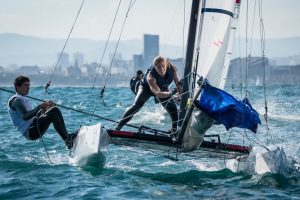
The talk linked the long standing work at Southampton in performance sailing led for nearly five decades by the internationally renowned Wolfson Unit for Marine Technology and Industrial Aerodynamics now based in B185 adjacent to our new 138 m long towing tank, the work on developing F1 and Indy cars in the R.J.Mitchell wind tunnel from the late 70s as well as over a decade of collaboration with UKSport/EIS(R&I) supporting a wide range of sports. The pursuit of performance that ensure that all athletes have the best possible equipment relies on a deep understanding of the physics of the problem coupled to possible engineering solutions. A common thread was the human aspects of the work where able PhD students work alongside sport scientists, coaches and athletes. To date PSEL has graduated 8 EngD/PhD students many of whom have an undergraduate Ship Science degree.
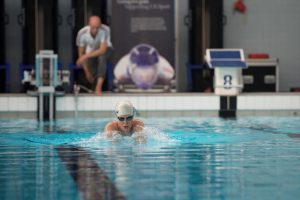
In a final section the relevance of the techniques and technologies developed in performance sport to the wider world and in particular the necessity to find solutions to the essential challenge of improving the energy efficiency of global shipping which transports 90% of the worlds goods, emits 3% of CO2 in 100,000 ships. How will these ships be fuelled in a low carbon world? An example of the cross-over is in Dr Angus Webb whose spin out company Dynamon offers services to the logistics industry.
For both talks the audience asked challenging questions and were in turn asked to spread the word that many more maritime engineering and ship scientists are needed!
GDP 23: Hydrofoiling Catamaran Experimental Research Platform
In recent years there has been an increasing trend of utilising hydrofoils to reduce drag and enhance the performance of high speed sailing vessels, following the developments of the International Moth class and the AC72s in the 34th America’s Cup. With this current interest growing within the marine industry, it is an exciting opportunity to establish a research platform acting as an interface to effectively carry out experimental testing of innovative hydrofoil technology.
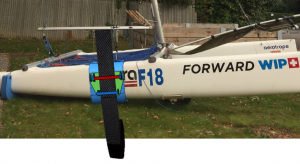
Our aim is to create this research platform by retrofitting a NACRA F18 catamaran using two J-shaped foils to facilitate foiling. In addition, two T-foil rudders will be designed and manufactured from composite materials. A pod system inserted onto the existing daggerboard cases, seen in Fig. 1, will also be developed to attach the J-foils to the side of the boat. The rudders will be designed to have interchangeable wings, allowing for different combinations of main foils and rudder tips to be used. This will permit the investigation into effects of alternative designs. These are the two main features that affect the forces acting on the boat and are therefore very important when developing a foiling craft.
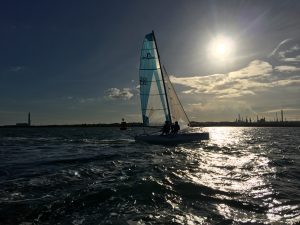
In order to analyse the boat’s response to real world conditions and to collect performance data such as speed, acceleration, roll, rate of turn and foils force, a suitable data acquisition system will also be developed. We aim to provide a good basis for further hydrofoil research to be carried out within the University and hope to encourage more curious minds to pursue naval architecture!
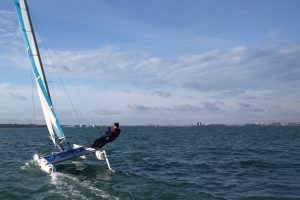
If you want to find out more about the project as it goes forward please visit their facebook page https://www.facebook.com/TheVolantiProject/
Winning ways rewarded by Wartsila
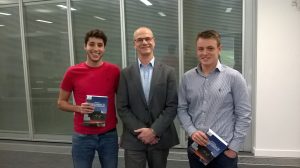
Today John Thornhill of Wartsila UK presented the Ship Design and Economics, Wartsila, General Arrangement Prize to Gilberto Zambrini and Cillian McGreer for their excellent coursework in the SESS2017 Part 2, Ship Design and Economics module.
They each received a copy of Wartsila’s book ; Wartsila Encyclopaedia of Marine Technology along with a certificate which recorded their achievement. Whilst here John took the opportunity to chat with the students about their current design task (Part 3, SESS3024 Marine Concept Design). Generally staff and students were very pleased with the awarding of this prize which aknowledged hard work and thoughtful design.
Society of Maritime Industries (SMI) Donald Maxwell Award 2016 Winner Announced!
At the Society of Maritime Industries (SMI) AGM Luncheon on the 6th October this year’s Donald Maxwell undergraduate award was presented to Kate Devereux who is just entering her 4th and final year of her MEng as a Ship Science student at the University of Southampton.
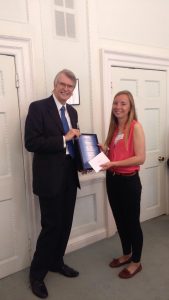
Kate received a cheque for £1,000 and her certificate from the Chairman of SMI Mr Peter French.
Mr French said: “Kate is a worthy recipient of this year’s award. Her dissertation is a fantastic example of the work young women are doing in our industry and SMI is proud to be part of celebrating British female engineers.”
The award is given for the best final year degree project from a UK resident student undertaking their study on a degree accredited by The Institute of Marine Engineering Science and Technology (IMarEST).
Judging was undertaken by SMI Board member Mr Duncan Cunningham FIMarEST and Mr Phil Green CEng FRINA. Kate’s paper most impressed the judges and was on the topic of “Investigation into the suitability of composite materials for the construction of marine propellers.”
The work was carried out following a summer internship at local propeller company CJR propellers working with FSI Alumni Dr Simon Lewis.
The Route to Sustainable Shipping
A combined SMMI and FSI panel discussion
Wed 12th October 2016 at 18:00
University of Southampton, Boldrewood Campus, 1125/176L
FSI post grad student Josh Taylor has organised a panel discussion as part of Southampton Sustainability Week.
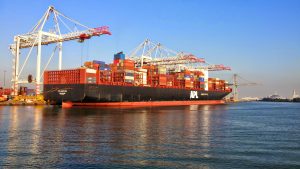
This public event explores the challenges faced by the maritime industry on the route to becoming more sustainable. The unique framework of the Southampton Marine and Maritime Institute facilitates the continued exchange of ideas between people in both academia and industry.
This event is part of Southampton’s first annual sustainability week and should provide a stimulating discussion to create opportunities for change while showcasing the maritime industry’s presence in Southampton. Southampton sustainability week is a series of city-wide events which encourage sustainable behaviour change by increasing awareness of issues and celebrating progress to date. The week is organised by a group of volunteers and headed by the founder Jenny Barnes.
A distinguished panel of industry experts and academics will discuss the challenges the maritime industry faces in achieving environmental sustainability, guided by structured questions from the chair, Professor Ajit Shenoi, University of Southampton director of the SMMI. The discussion topics will include Ship design, Maritime law, Regulation and innovation, Fleet operation, Waste management.
For those interested in attending please register for free via Eventbright:
https://www.eventbrite.co.uk/e/the-route-to-sustainable-shipping-tickets-28168759518
If you are interested in exploring our study opportunities in maritime engineering and ship science then the video interviews with two of our graduates Thomas and Emily from graduation this summer maybe useful.
Lets twist – how does it influence VIV?
This summer one of our recent MEng graduates Carlos Losada de la Lastra spent a month in Southampton and two in Singapore and reports on his research project in offshore hydrodynamics.
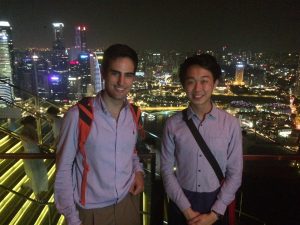
The offshore industry is tending towards multi-riser structures where the offshore platform or floating unit uses more than one pipe to meet more requirements. These pipes have a cylindrical cross section, which may induce vortex induced vibrations (VIV) as crossflow passes around them. This causes fatigue and high loading on the connection points at the seabed and the offshore structure.
The aim of the study was to investigate whether a helical arrangement of the cylinders could reduce the vibrations of the array and provide a wider operational window for offshore structures with multiple risers. I carried out the study using Assoc. Prof. Weymouth’s CFD solver, Lotus, to predict the flow around a seven cylinder array. The main parameters affecting the VIV of the array are, the flow speed, the gap between the cylinders, and the pitch of the array. Where the pitch governs the helicity of the array. To decouple each of the parameters I carried out separate investigations covering each of the parameters.
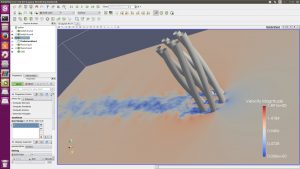
I started the parameter investigation by looking into the effects the gap had on the side force produced by the vortex shedding. I then started investigating the effects of varying the flow speed on the gap range of relevance. Before running simulations of the helical array I had to write a mapping function that twisted it. Having finished writing and validating the mapping function, I looked into the effects of varying the pitch of the array.
The project has been a really good experience. The idea of a helical array came from a question I asked during a lecture last January. This really motivated me throughout the project. The project itself provided a great insight to research. My two supervisors, Assoc Prof. Weymouth and Dr. Vinh Tan, provided invaluable guidance and help throughout the project, but it was up to me to run the simulations, deliver good results and contribute to the discussion. This allowed me both to develop and organise, my simulations, my thought process and my reasoning through the concepts. I learned a lot about hydrodynamics, running and automating simulations, and post processing of results. I also improved my programming and computing skills.
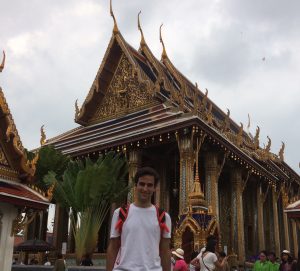
On the cultural side of things I managed to see and experience Singapore with many friends, and squeeze a trip to Bangkok on a weekend as a back packer.

